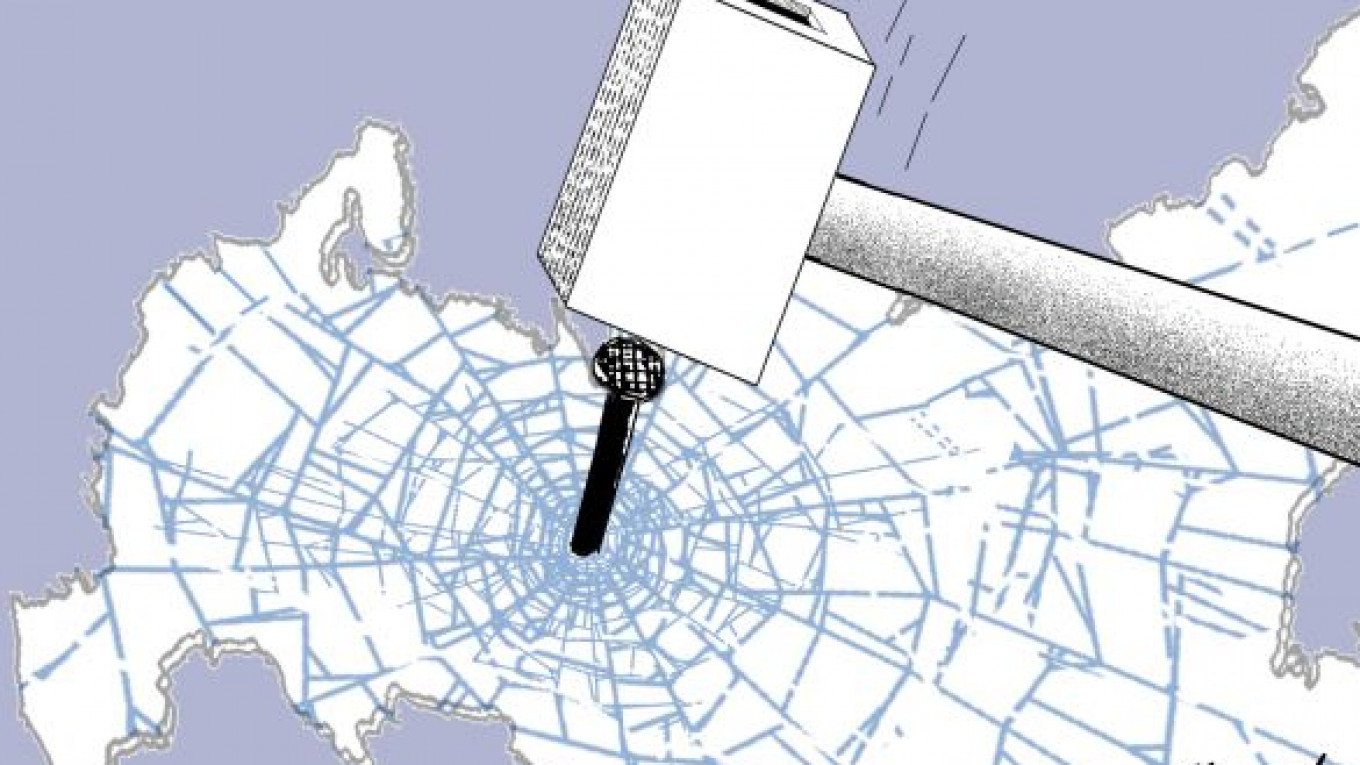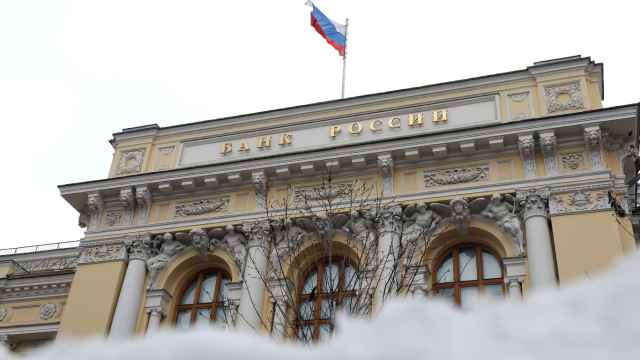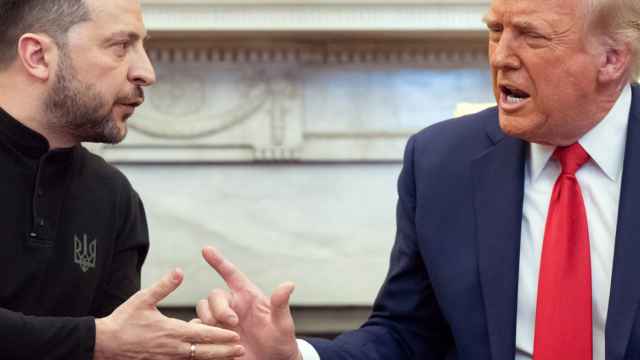In 1811, assessing the possibility — or, rather, the impossibility — of Russia ever undergoing a Western-style transformation, the diplomat and counter-Enlightenment philosopher Joseph de Maistre famously wrote, "Every nation has the government it deserves." Fourteen years later, the Decembrist revolt — a movement of poets and army officers to topple Tsar Nicholas I and establish a constitutional monarchy — seemed to refute de Maistre's claim. Yet the revolt was suppressed, and the Decembrists were executed or exiled. One doomed officer famously declared, "You can't hang us all."
Russia's brutal 20th century, with its totalitarianism and gulags, nearly proved that officer and de Maistre wrong. No one "deserves" to be ruled so monstrously. An estimated 20 million Russians perished under Josef Stalin's rule, and the rest were paralyzed with terror.
The original phrase that every nation gets the government it deserves was directed at Russia. But do Russians really deserve Putinism?
The 21st century has been kinder to Russians, at least so far. But while terror and famine have been absent, many of the oppressive tactics of the past have been revived under President Vladimir Putin's misrule, now in its 14th year.
Since 2003, when billionaire Mikhail Khodorkovsky was arrested for alleged embezzlement and fraud after he dared to support Putin's political opponents, Russia's elite has been largely brought to heel. None of them envisaged rotting in a labor camp like Khodorkovsky. Under Putin, it seems, de Maistre's maxim has received a new lease on life.
Then in 2011, street protests against Putin and his party of "crooks and thieves" erupted, and opposition leader Alexei Navalny, who coined that epithet, became the face of Russia's opposition. Navalny, a 37-year-old anti-corruption lawyer, has been a thorn in Putin's side ever since. Recently, he announced that he had presidential ambitions. In the meantime, he is seeking to become the mayor of Moscow, arguably the country's second most important political post.
The mayoral campaign is now in full swing, with Sunday's election the first in Moscow in 10 years. Before that, Putin had simply been appointing loyalists as mayors and governors throughout the country. The acting mayor, Sergei Sobyanin, who has the full support of the Kremlin political and media machine, has been receiving personal-approval ratings above 90 percent in recent opinion polls. But Navalny's approval ratings are not far behind, at 80 percent, and he has achieved them entirely on his own.
Navalny's candidacy received a recent boost when he became a convicted criminal, following a trial that resembled Khodorkovsky's in terms of blatant political manipulation. Accused of fraud, Navalny received a five-year prison sentence for allegedly embezzling from KirovLes, a provincial timber company. But in an unusual twist, Navalny was released from custody pending appeal of his conviction only a day after it was handed down.
That, some say, was because his supporters immediately took to the streets. The likelier motivation is that Putin decided to let the election play out, relying on Navalny to lose. In that case, Sobyanin, who was appointed in 2010, would gain the legitimacy that he has lacked until now, and the opposition movement would be discredited in the capital, whose residents form the core of Navalny's political base.
In a new challenge to de Maistre's maxim, almost 200 young businessmen overcame the fear inspired by Khodorkovsky's fate and donated funds to Navalny's campaign. Thirty-seven of them signed what they called a new "social contract." According to their manifesto, they "expect Navalny to defend the rule of law, support independent courts and ensure that officials are really accountable before society." They are investing "reputational, financial, organizational and other resources" in a man who promises to hire competent advisers and free the city — and eventually the country — from endemic corruption and abuse of power.
Most of these young entrepreneurs have risen within the "knowledge economy." They include the inventor of a cloud-computing service, the founder of an online luxury goods business, a developer of new banking technologies and the creator of a social networking platform for doctors. All of them have a good education, and many hold U.S. business degrees.
Many of these business leaders would have preferred to stay out of politics, but Russia's poor education system, economic feudalism, state-sponsored homophobia and other festering problems have left them no choice. And Putin himself has become an insufferably vulgar embarrassment.
To be sure, Navalny's backers could emigrate comfortably. Invigorated by their candidate's campaign, however, they are willing to see whether he can make a difference. Indeed, Navalny has become the only hope for competitive politics in Russia.
At the same time, Navalny's unapologetic nationalism makes many people nervous. What' more, while Russian leaders may start out as reformers, they do not often remain so. Boris Yeltsin began the 1990s as a courageous democrat when he was president, only to end up a corrupt, bibulous buffoon, while Putin initially vowed to bring law and order to the post-Yeltsin chaos.
So Moscow's mayoral election is a moment of truth for Navalny, the business leaders investing in his campaign, all Muscovites and perhaps Russia as a whole. As during the time of the Decembrists, anyone in Russia can suffer from overweening government power, regardless of political belief. Fear and apathy have become riskier than taking a stand.
But the question remains: Can Navalny and his supporters change Russia's political culture of fear, or was de Maistre right after all?
Nina Khrushcheva, author of "Imagining Nabokov: Russia Between Art and Politics," teaches international affairs at The New School and is a senior fellow at the World Policy Institute in New York. © Project Syndicate
A Message from The Moscow Times:
Dear readers,
We are facing unprecedented challenges. Russia's Prosecutor General's Office has designated The Moscow Times as an "undesirable" organization, criminalizing our work and putting our staff at risk of prosecution. This follows our earlier unjust labeling as a "foreign agent."
These actions are direct attempts to silence independent journalism in Russia. The authorities claim our work "discredits the decisions of the Russian leadership." We see things differently: we strive to provide accurate, unbiased reporting on Russia.
We, the journalists of The Moscow Times, refuse to be silenced. But to continue our work, we need your help.
Your support, no matter how small, makes a world of difference. If you can, please support us monthly starting from just $2. It's quick to set up, and every contribution makes a significant impact.
By supporting The Moscow Times, you're defending open, independent journalism in the face of repression. Thank you for standing with us.
Remind me later.






